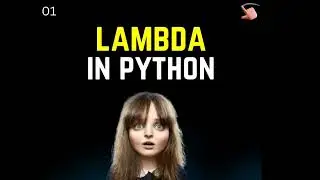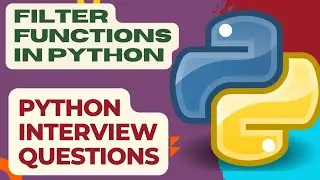How to run shell commands with python? python subprocess run
#python #pythonprogramming #pythontutorial #automation #subprocess #subprocess.run #subprocess.popen #run #Popen #interviewquestions #shell #commands #applications #completedprocess #return
code link: https://github.com/ganaidu707/CodeasB...
Subprocess Popen link: • python subprocess.Popen for running e...
python official page: https://docs.python.org/3/library/sub...
The subprocess module allows you to spawn new processes, connect to their input/output/error pipes, and obtain their return codes
Using the subprocess Module
The recommended approach to invoking subprocesses is to use the run() function for all use cases it can handle. For more advanced use cases, the underlying Popen interface can be used directly.
subprocess.run(args, *, stdin=None, input=None, stdout=None, stderr=None, capture_output=False, shell=False, cwd=None, timeout=None, check=False, encoding=None, errors=None, text=None, env=None, universal_newlines=None, **other_popen_kwargs)
Run the command described by args. Wait for command to complete, then return a CompletedProcess instance.
The arguments shown above are merely the most common ones, described below in Frequently Used Arguments (hence the use of keyword-only notation in the abbreviated signature). The full function signature is largely the same as that of the Popen constructor - most of the arguments to this function are passed through to that interface. (timeout, input, check, and capture_output are not.)
If capture_output is true, stdout and stderr will be captured. When used, the internal Popen object is automatically created with stdout=PIPE and stderr=PIPE. The stdout and stderr arguments may not be supplied at the same time as capture_output. If you wish to capture and combine both streams into one, use stdout=PIPE and stderr=STDOUT instead of capture_output.
The timeout argument is passed to Popen.communicate(). If the timeout expires, the child process will be killed and waited for. The TimeoutExpired exception will be re-raised after the child process has terminated.
The input argument is passed to Popen.communicate() and thus to the subprocess’s stdin. If used it must be a byte sequence, or a string if encoding or errors is specified or text is true. When used, the internal Popen object is automatically created with stdin=PIPE, and the stdin argument may not be used as well.
If check is true, and the process exits with a non-zero exit code, a CalledProcessError exception will be raised. Attributes of that exception hold the arguments, the exit code, and stdout and stderr if they were captured.
If encoding or errors are specified, or text is true, file objects for stdin, stdout and stderr are opened in text mode using the specified encoding and errors or the io.TextIOWrapper default. The universal_newlines argument is equivalent to text and is provided for backwards compatibility. By default, file objects are opened in binary mode.



















